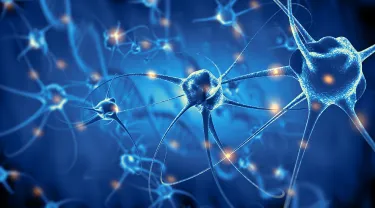Researchers at Tufts University School of Medicine have discovered a previously unknown function performed by astrocytes, cells that comprise nearly half of all cells in the brain.
The scientists say this discovery in mice of a new function by astrocytes opens a whole new direction for neuroscience research that might one day lead to treatments for many disorders, including epilepsy, Alzheimer’s, and traumatic brain injury.
Astrocytes guide the growth of axons, the long, slender projections that conduct electrical impulses. They also control neurotransmitters, chemicals that enable the transfer of electrical signals throughout the brain and nervous system. In addition, astrocytes build the blood-brain barrier and react to injury.
But, until recently, astrocytes did not seem to be electrically active like neurons, and they did not seem as important as neurons in the complex electrical and chemical signaling that happens when neurons transmit information between different areas of the brain and between the brain and the rest of the nervous system.
The School of Medicine research team made its discovery using new technology that images electrical activity with light. This approach allowed them to see and study the electrical properties of brain cell interactions, which could not be observed previously.
Neuron-to-neuron communication occurs through the release of packets of chemicals called neurotransmitters. Scientists knew that astrocytes control neurotransmitters, helping to make sure that neurons stay healthy and active. But their findings reveal that neurons also release potassium ions, which change the electrical activity of the astrocyte and how it controls the neurotransmitters. In other words, there’s communication back and forth in ways that were not previously understood.
“The electrical activity of astrocytes changes how neurons function,” said Chris Dulla, associate professor of neuroscience at the School of Medicine and Graduate School of Biomedical Sciences. “Because there is so much unknown about how the brain works, discovering new fundamental processes that control brain function is key to developing novel treatments for neurological diseases."
The researchers are now screening existing drugs to see if they can manipulate the neuron-astrocyte interactions. In doing so, in addition to tackling epilepsy and Alzheimer’s, scientists might one day be able to help people learn faster or better, Dulla said, or perhaps repair brain injuries more successfully, resolve issues related to breathing, and better manage developmental disorders and a wide range of different neurological diseases.
